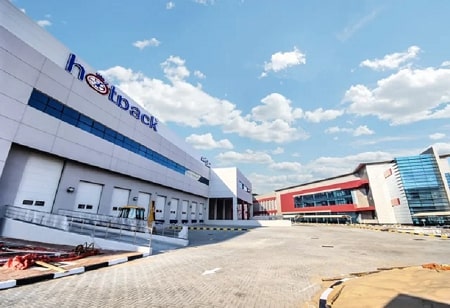
UAE's Hotpack Global to Commence $266 Million Packaging Project in Saudi Arabia

 A Saudi Arabian initiative for specialised food packaging costing an estimated SR1 billion ($266 million) is being planned by the UAE-based Hotpack Global in order to provide environmentally friendly goods.
A Saudi Arabian initiative for specialised food packaging costing an estimated SR1 billion ($266 million) is being planned by the UAE-based Hotpack Global in order to provide environmentally friendly goods.
The Saudi Ministry of Industry and the Emirati maker of disposable food packaging goods have inked an agreement for the project, the business announced in a statement.
The agreement will open the door for the development of one of the largest specialised food packaging projects in the Kingdom to date, to be stretched over a seven-year period.
The project's goal is to produce a range of packaging products, including recyclable, biodegradable, and ecologically friendly options. The action is part of a movement to lessen packaging waste, which is increasing annually throughout the world.
In accordance with the agreement, the two parties will also cooperate to exploit specific agricultural waste kinds in an effort to turn it into one of the primary raw materials required for manufacturing and production inputs in the near future.
Khaled Al-Falih, the Saudi Arabian Minister of Investment, and Osama Al-Zamil, the Deputy Minister of Industry and Natural Resources, were both present when the deal was signed.
The agreement follows Hotpack's announcement in April of last year that it will spend 350 million dirhams ($95.30 million) over ten years to construct up to ten biodegradable packaging plants in Malaysia.
According to the business, the initiative will be carried out in collaboration with Malaysia's Free The Seed Sdn Bhd, which produces biodegradable goods from rice straw and is supported by Malaysian Bioeconomy Development Corp.
Hotpack's first factory in Southeast Asia will be in Malaysia.
The first 3,200 square metre production plant, which will be built next to Free the Seed's current building, is scheduled to go up in May 2022 and be finished in August 2022, according to the business.
The initial factory is anticipated to create 70 million units of packaging for quickly moving consumer items per year.
On the other hand, the Saudi Ministry of Investment wants to make the Kingdom one of the best-performing marketplaces for investments, which is why it reached the agreement with the Emirati producer of packing materials.
To support sustained national economic growth, the ministry's purpose is to market Saudi Arabia as a top international investment location, draw in new capital, keep existing investors, and increase their investments.

